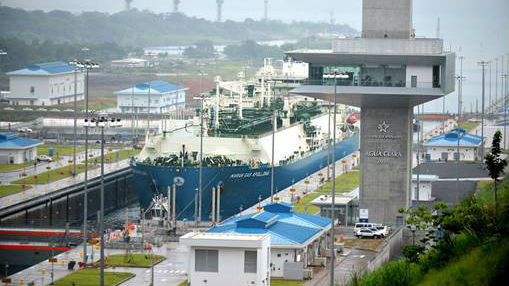New Agreement Encourages China to Buy American LNG

The U.S. Department of Commerce has reached a deal with the Chinese government that will allow China's state-owned gas companies to enter into purchase agreements with American LNG exporters.
From the American side, the terms are broad and mainly serve to confirm existing policy. "Companies from China may proceed at any time to negotiate all types of contractual arrangement with U.S. LNG exporters, including long-term contracts, subject to the commercial considerations of the parties," the Department of Commerce said in a joint statement. In return, China has agreed to allow its LNG importers to enter into long-term contracts with American suppliers.
LNG spot cargoes from the U.S. to China already occur. Cheniere, the first firm in decades to build an LNG terminal in the United States, has already shipped 10 spot cargoes to Chinese buyers; the company recently told Reuters that it has held "extensive negotiations" with Chinese state-owned companies on increasing shipments.
But there are obstacles to growth on this trade lane. American LNG projects are concentrated on the Gulf Coast, and shipments to China must either transit the New Panama Canal or cross the Atlantic – raising cost and shipping time. "China is much nearer and much cheaper to ship from Australia, for example, or Qatar," said Alan Bannister, regional director for energy pricing at S&P Global Platts, speaking to CNBC last week. "What I think we're more likely to see in the real world is that U.S. Gulf Coast LNG will primarily go to Europe."
In addition, long-term buyers will have to weigh the risks of tying their costs to the future of the U.S. domestic natural gas market. Unlike the world's other suppliers, who price their gas against Brent crude, American exporters peg the price of LNG to the Henry Hub natural gas index. Since 2008, the growing supply of natural gas from East Coast shale plays has kept the Henry Hub price low – making long-term contracts with Cheniere and Dominion relatively attractive. But those prices have been trending upwards over the last year, and they are not guaranteed forever.
Even if the recent deal does not have an immediate effect on loadings of American natural gas, it could put downward pressure on LNG prices in the Asia-Pacific market. Chinese firms will now be able to threaten to switch to American supplies when they go to negotiate with producers in Qatar or Australia. They "don't have to import any U.S. LNG. They just have to have that sledgehammer in their pocket when they go to negotiate their other contracts," said Benjamin Salisbury, a senior policy analyst with FBR Capital Markets, speaking to CNBC.
